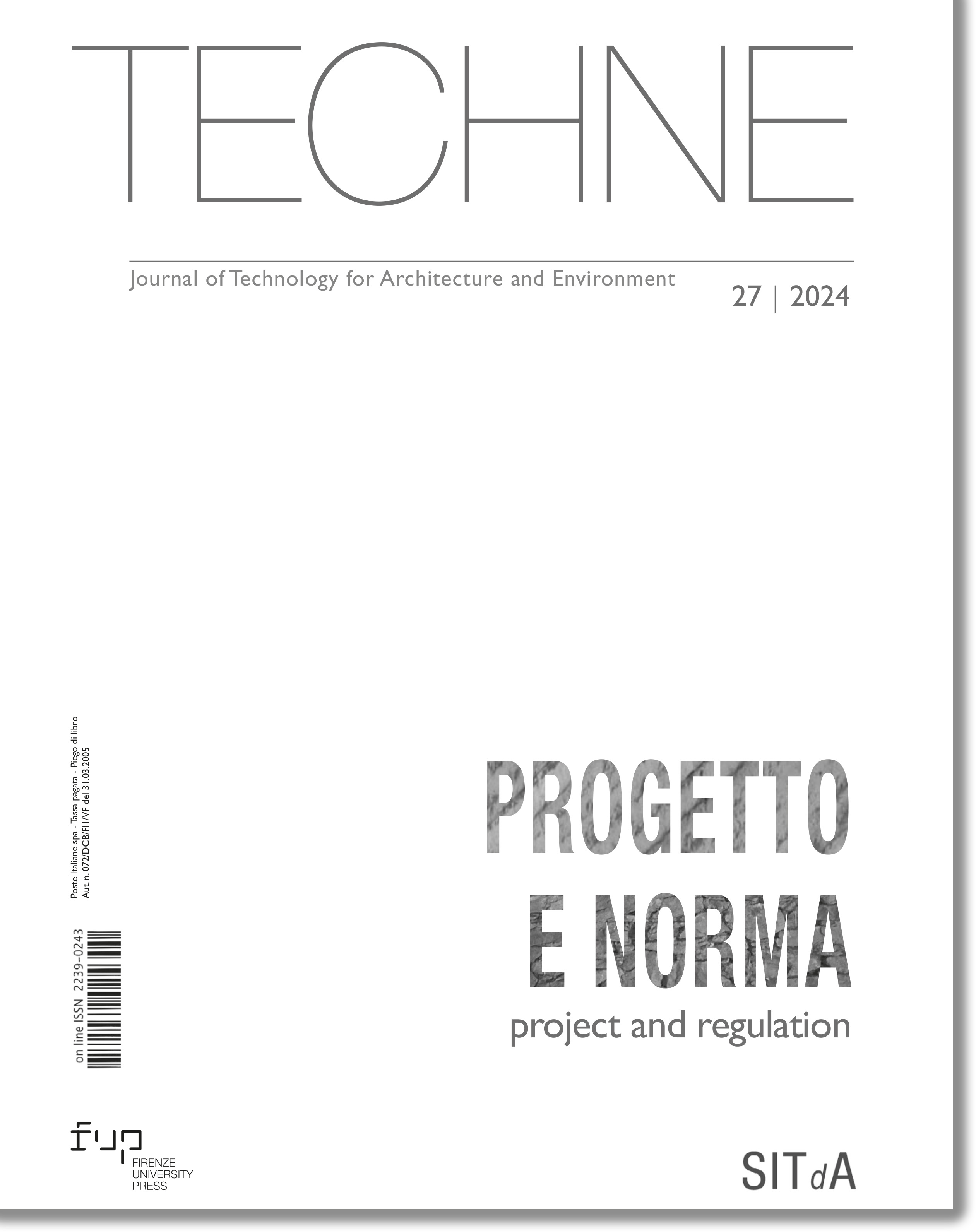Published 2024-06-10
Keywords
- Multi-stakeholder cooperation,
- Construction site-schools,
- Confiscated assets,
- Social integration,
- Legal-procedural aspects
How to Cite
Copyright (c) 2024 Andrea Campioli, Oscar Eugenio Bellini, Chiara Bernardini, Serena Giorgi, Giancarlo Paganin

This work is licensed under a Creative Commons Attribution 4.0 International License.
Abstract
Nowadays, the transformation processes of the built environment, particularly those with the “common good” as their target, face complex regulatory systems organised in multiple areas, levels and scales. The different legislations often hinder the possibility of achieving the defined objectives due to the inability to interpret and translate the contents of these instruments into practice, and the difficulty of coordinating the tools as a result of different perspectives and goals. The research addresses this critical issue within the redevelopment and value-enhancement processes of properties confiscated from organised crime by proposing an innovative management model, which systematises the rules and roles of multiple subjects, increasing the social impact of requalification actions.
Downloads
References
- Calamunci, F. M. et al. (2023), “Mafia doesn’t live here anymore: Antimafia policies and housing prices”, Journal of Regional Science, Vol. 63, No. 4, pp. 1001-1025. DOI: https://doi.org/10.1111/jors.12647
- Dalla Chiesa N. (2016), Il riuso sociale dei beni confiscati. Le criticità del modello lombardo. Rivista di studi e ricerche sulla criminalità organizzata, vol. 2/16.
- David, P., Ofria, F. (2014), L’economia dei beni confiscati, FrancoAngeli, Milano.
- Douma, K., Scott, L., Bulzomi, A. (2017), SDG Investment case, United Nations Principles for Responsible Investment, New York.
- Eshun, B.T.B., Chan, A.P.C. and Osei-Kyei, R. (2021), “Conceptualizing a win-win scenario in public-private partnerships: evidence from a systematic literature review”, Engineering, Construction and Architectural Management, Vol. 28, No. 9, pp. 2712-2735. DOI: https://doi.org/10.1108/ECAM-07-2020-0533
- Esposito, P. et al. (2014), “Public (dis)value: A case study”, Studies in Public and Non-Profit Governance, Vol. 3, pp. 291 – 300. DOI: https://doi.org/10.1108/S2051-663020140000003012
- Ferroni, M.V. (2022), “Urban Regeneration and temporary re-use of the assets: assets confiscated from organized crime; Rigenerazione urbana e riuso temporaneo dei beni: i beni confiscati alla criminalità organizzata”, Sociologia Urbana e Rurale, No. 128, pp. 71-82 DOI: https://doi.org/10.3280/SUR2022-128007
- Ferroni, M.V. (2023), “The Re-use of Assets Confiscated from Organized Crime: How to Make the Informal Formal” Urban Informality: A Multidisciplinary Perspective, pp. 67-771 DOI: https://doi.org/10.1007/978-3-031-29827-1_6
- Giofrè, F., El Edeisy, M. (2022), “Teaching practices in architectural technology courses. An experiment and future perspectives in the Italian context”, 8th International Conference on Higher Education Advances (HEAd’22), Universitat Politecnica de Valencia, Valencia, pp. 789-796. DOI: https://doi.org/10.4995/HEAd22.2022.14646
- Maestri, M. (2016), “I beni immobili confiscati alla criminalità organizzata in Lombardia”, Rivista di studi e ricerche sulla criminalità organizzata, Vol. 2, No. 2, pp. 26-53.
- Mira, T., Turrisi, A. (2019), Dalle mafie ai cittadini. La vita nuova dei beni confiscati alla criminalità, San Paolo edizioni, Cinisello Balsamo.
- Nielsen, R.P. (2009), “Varieties of Win–Win Solutions to Problems with Ethical Dimensions”, Journal of Business Ethics, Vol. 88, pp. 333-349. DOI: https://doi.org/10.1007/s10551-008-9967-x
- Pezzullo, C. (2022), “Municipal Regulation and Entrustment in Use in the regulation of property confiscated from organised crime; Regolamento comunale e affidamento in uso nella disciplina sui beni confiscati alla criminalità organizzata”, Federalismi.it, Vol. 2022, No. 31, pp. 68-87.
- Polis (2016), Il punto sul tema dei beni confiscati alle mafie in Lombardia. Éupolis. Available at: chrome-extension://efaidnbmnnnibpcajpcglclefindmkaj/https://www.polis.lombardia.it/wps/wcm/connect/7fe0e944-f290-4379-80fe-097a3a9bb18d/GEN15008RF_edconsiglio_beniconfiscati.pdf?MOD=AJPERES&CACHEID=ROOTWORKSPACE-7fe0e944-f290-4379-80fe-097a3a9bb18d-mmGi6YU






